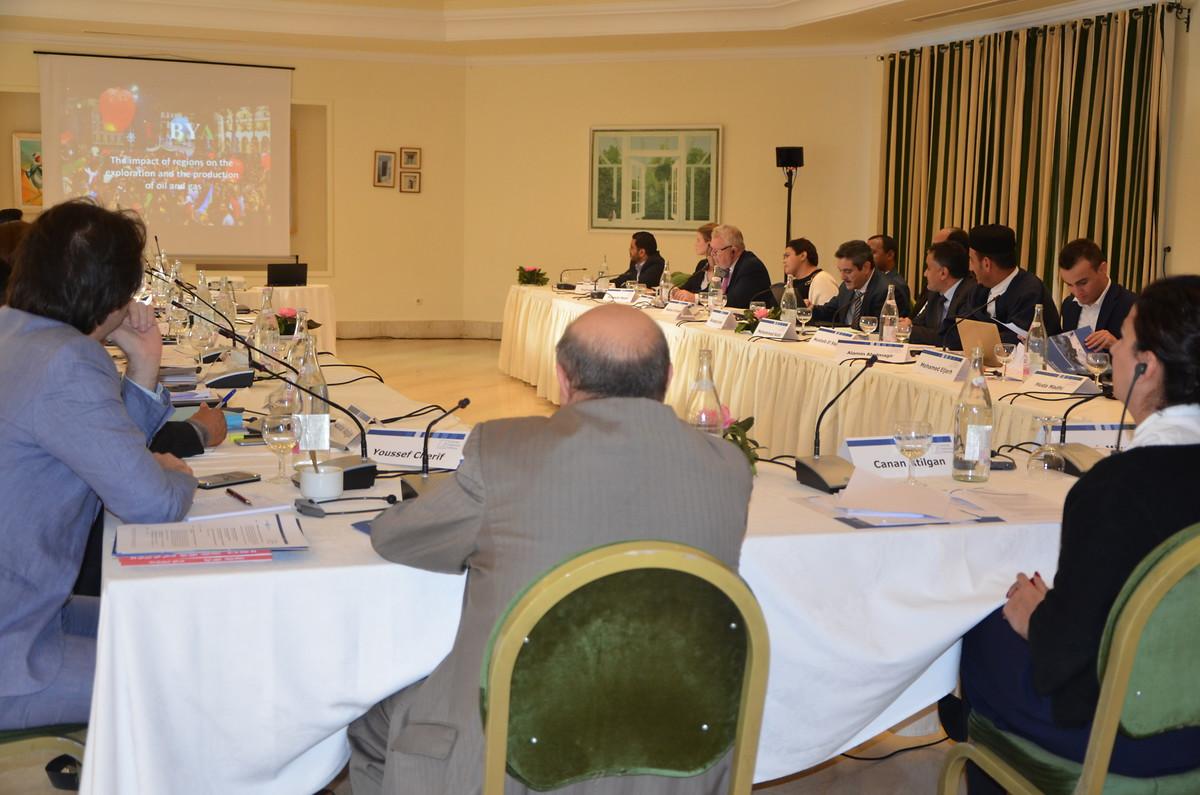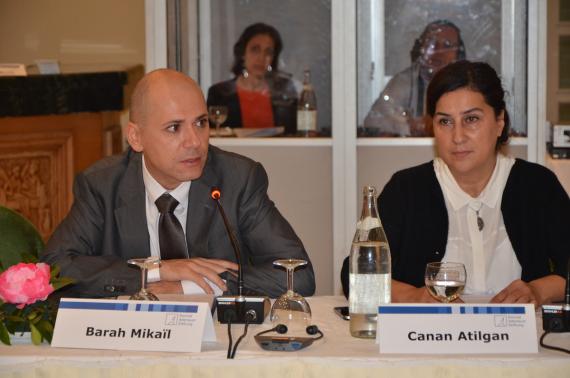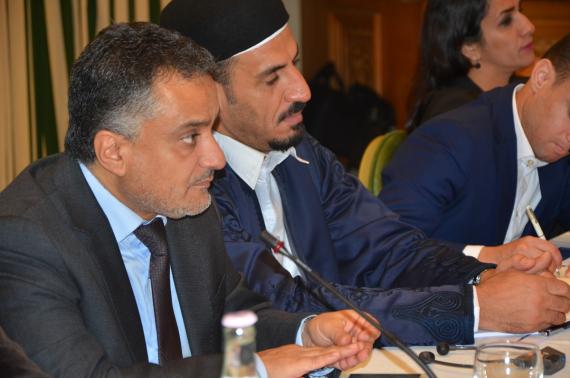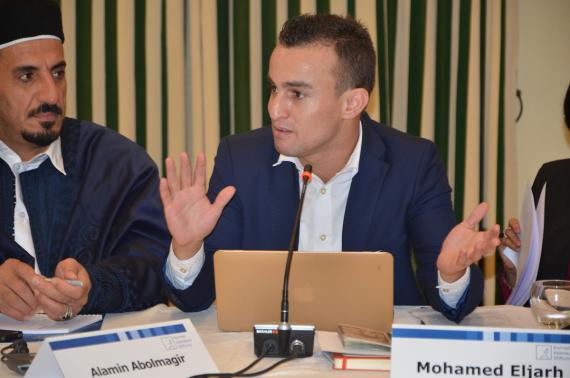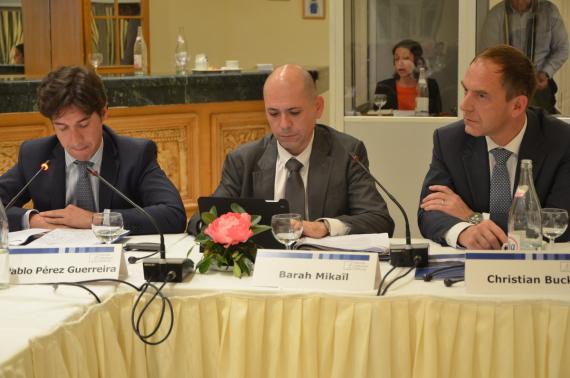Instability, insecurity, war and political divisions have been prevailing in Libya for almost six years now. In this situation, Libya’s successive governments have failed to address the population’s basic needs. As a result, many Libyans turned their heads towards local governments, adding to internal divisions. In the current situation many Libyans try to identify who among local leaders and representatives could best defend their interests. Some Libyans seek solutions looking at their municipal councils; others favor religious, tribal and/or clan leaders. This complex situation makes it all the more important to correctly identify the current trends in Libya’s most important towns and areas. To contribute to this understanding, the KAS Regional Office South Mediterranean in cooperation with Madrid-based think tank Stractegia organized a conference on “State legitimacy and local governance in Libya” in order to better explain how many citizens seem to believe that, ultimately, local governments and/or local leaders could compensate the state’s deficits.
Dr. Canan Atilgan, Director of the KAS Regional Office South Mediterranean and Barah Mikail, Director of Stractegia, opened the conference with introductory words and emphasized the necessity to go beyond conventional topics and approaches in order to help Libya on its way towards stability and development.
In the first panel, the speakers shed light on the current political and institutional realities in Libya, by discussing the work of the Government of National Accord, the political situation in Tripoli and the humanitarian situation throughout Libya. Moreover, information on the fight against ISIS in Sirte and prospects for the development after the liberation were presented.
In the second panel, a closer look was taken at the role of local governments. Questions posed where how to best strike the balance between the national and the local level as well as how the system of local governance could be improved. Municipal councils are viewed as having an important function in preventing marginalization of regions and in fostering democratic development. The current “militarization” of municipal councils through the replacement of elected members by military personnel however threatens this function. Another presentation stressed the importance of local governments in the reintegration of armed groups – one of the main concerns in Libya at the moment due to the high number of armed groups in the country.
The third panel then focused on civil society actors and the role of tribes and tribal leaders in Libya. The speakers shed light on the complex societal dynamics in Libya by discussing the aims of civil society actors in Libya and the challenges they are faced with as well as the role of tribes in smuggling activities. Furthermore, the impact of different regions on the exploration of oil and gas, the main economic sectors, was explored.
The final roundtable subsequently expanded the focus to local, national as well as international perspectives. Speakers for this roundtable included Dr. Otman Gajiji, Chairman of the Central Committee of Municipal Elections of Libya, who presented the perspective of the municipal level, as well as Dr. Christian Buck, German Ambassador to Libya, and Pablo Pérez Guerreira, Political Counsellor at the Spanish Embassy in Libya. The latter stressed the importance of both the national and the local level for the stabilization and democratic development of Libya and emphasized the role the international community can play by providing help concerning the processes for reform. The content of those reforms however has to come from the Libyans themselves.
The discussions offered an important contribution for a better understanding of the main rivalries and the dynamics that stand against the consolidation of a successful political process in Libya and for the identification of ideas that could help orientating discussions on Libya towards a concrete and more constructive horizon in the future.



